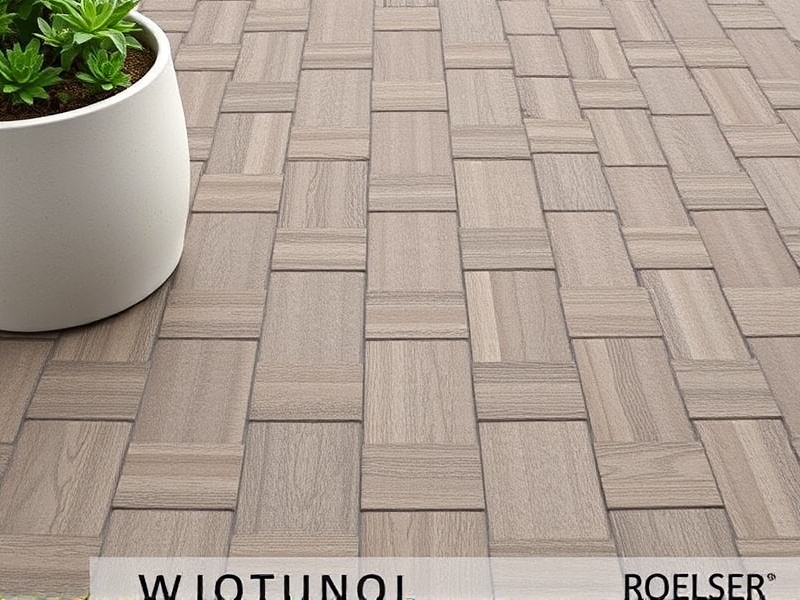Our Location
304 North Cardinal St.
Dorchester Center, MA 02124
Guidance on selecting the best interlocking tile for WPC projects based on factors like climate, usage, and design preferences.

When embarking on a project involving Wood Plastic Composite (WPC), selecting the right interlocking tile is crucial. The quality of the interlocking tile directly impacts the durability, appearance, and overall longevity of your project. High-quality interlocking tiles are typically made from a blend of wood fibers and plastic resins, which offer excellent resistance to moisture, UV radiation, and pests. It’s essential to look for tiles that have been manufactured by reputable companies with certifications like ISO 9001, which ensure consistent quality standards. Additionally, consider the thickness and density of the tiles, as these factors contribute significantly to their strength and stability under various environmental conditions.
Color options play a pivotal role in determining the visual appeal of your WPC project. Manufacturers often provide a wide range of colors and finishes, allowing you to match or contrast with existing architectural elements. When choosing a color, it’s important to consider both the immediate aesthetics and the long-term maintenance required. Darker shades might be more prone to fading over time, while lighter colors can help reduce heat absorption. Furthermore, some manufacturers offer customizable options where you can choose specific hues or patterns, providing a unique touch to your project. Always check the manufacturer’s warranty and color retention guarantees before making a final decision.
The environment in which your WPC project will be installed should also guide your choice of interlocking tiles. For instance, outdoor applications require tiles that are highly resistant to weathering and UV degradation. Look for tiles specifically designed for exterior use, as they are engineered to withstand prolonged exposure to sunlight, rain, and temperature fluctuations. Conversely, indoor applications may require tiles with enhanced slip-resistance properties or those that are easy to clean and maintain. Some manufacturers offer specialized lines of interlocking tiles tailored for high-traffic areas, ensuring both safety and aesthetic consistency.
For more detailed insights into the selection process of interlocking tiles for WPC projects, consider exploring resources such as ISO 9001 Standards, which outline the quality management systems that reputable manufacturers adhere to. Additionally, WPC Association provides comprehensive guides on material properties and best practices for different application scenarios.